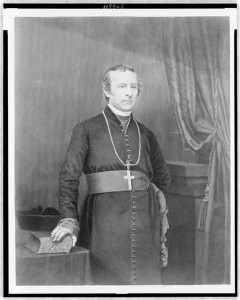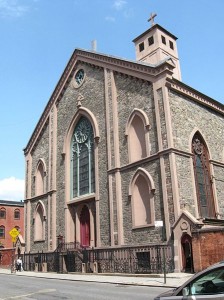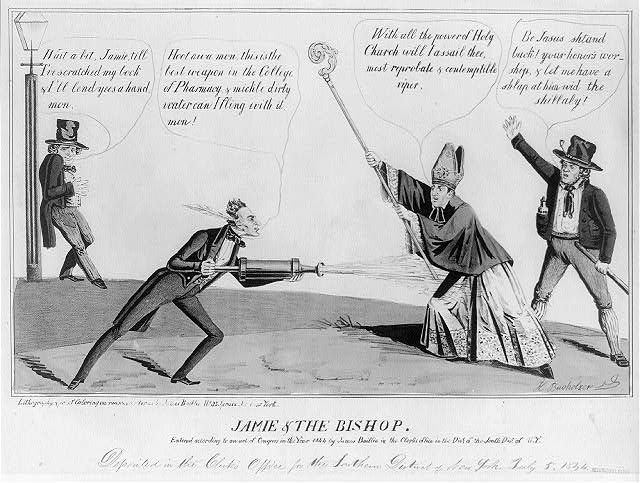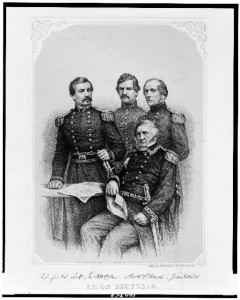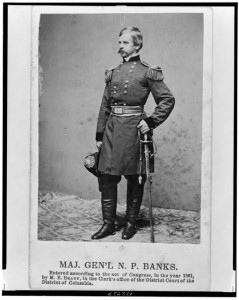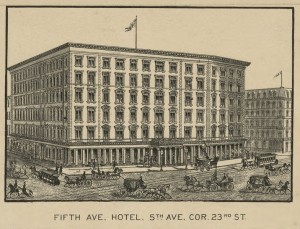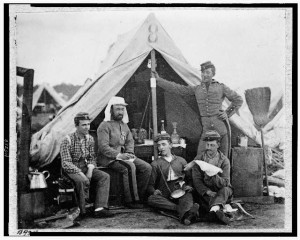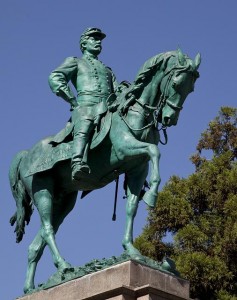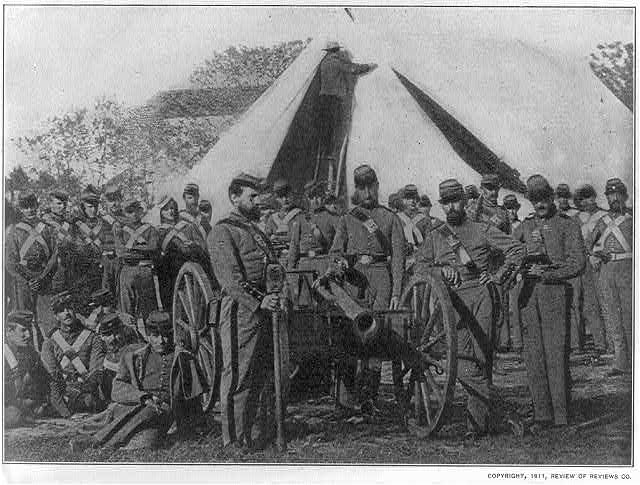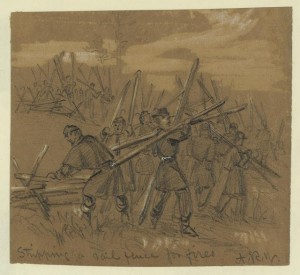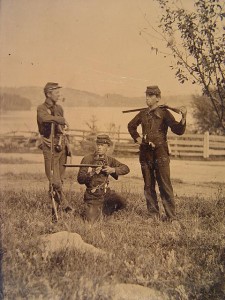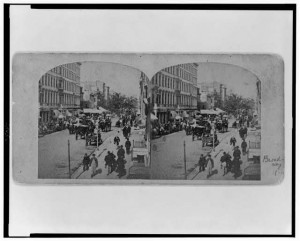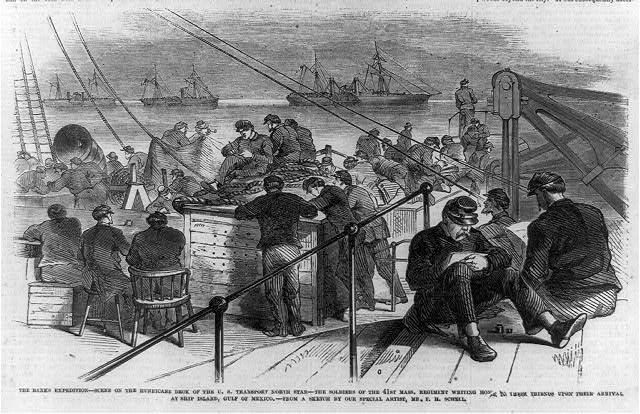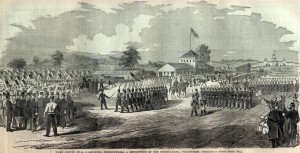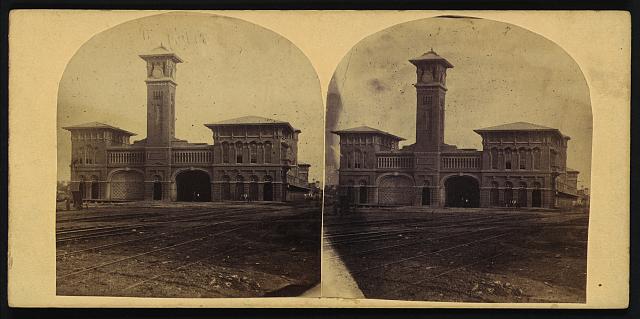Last week The Civil War 150th Blog compared the official Union and Confederate Thanksgivings in 1862. Presidents Lincoln and Davis were thankful for military victories and proclaimed days of Thanksgiving in April and September respectively. Thanksgiving days were pretty fluid back then, but here’s evidence that there was some tradition for a fowl feast on a Thursday late in November.
The writer concludes with passionate words about fighting for “Union and Liberty” that has nothing to do with freeing slaves.
From a Seneca County, New York newspaper in 1862:
Letter from the 148th Regiment.
CAMP FOLGER, NEAR PORTSMOUTH, Va,
Thursday, Nov. 27, 1862.
EDITOR REVEILLE: – As many of the readers of your paper are particularly interested in the 148th reg. N.Y.V., we beg leave to say a few words through its columns relative to this band of patriots. We are very comfortably and quietly situated some two miles from the city of Portsmouth, upon the same grounds we pitched our tents the 12th of October last. The time of our sojourn here has been passed in studying the arts of war, under the instruction of our able and gentlemanly Lt. Col. Guion. We think tht the “rebs” would deem the 148th of no little consequence if they were called to contend with them on the battle field.
It is unusually quiet with us to day, the ordinary camp duties are dispersed with to give us ample opportunity to palatably prepare the turkey, chicken, goose or duck (as the case may be) procured for our thanksgiving dinner.
We are blessed with general good health at present, our sick list numbers as low as it has at any time since the organization of the Regt. We have lost but three by death since leaving the Empire State. A general feeling of regret pervades the whole Regiment at present on account of the resignation of our Q.M., Lieut. E. Woodsworth. He was obliged to leave his post, on account of the duties devolving upon him proving too arduous for his present state of health. He has at all times, and in all places, shown himself a perfect gentleman, and ever will be held in grateful remembrance by every member of the 148th Regt. In concluding this hastily written article we will say that we deem the cause which has prompted us to leave our homes, kindred and friends, a glorious one. We have sworn to hold no truce with traitors until the sunshine of peace shall again illuminate our now distracted land, and “Union and Liberty” once more be the watchword from ocean to ocean, and from the lakes to the gulf. We are ready and willing to wield the sword, even to the death, not for the “nigger,” but for the maintainance of those national laws which for nearly a century has given us protection and unbounded prosperity.
A MEMBER OF THE 148th
The 148th was a new regiment that “chiefly engaged in garrison duty at Suffolk, Norfolk and Yorktown, Va.” during the fall of 1862 and all of 1863. George Murray Guion has made the transition from Captain in the “old” 33rd regiment to Lieutenant Colonel of the 148th.

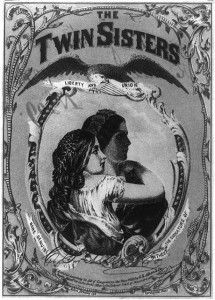
![Civil War envelope showing Columbia with American flag, laurel wreath, eagle, and cannon with message "Liberty and Union" (Boston : J.M. Whittemore & Co., [between 1861 and 1865]; LOC: LC-DIG-ppmsca-31711) Civil War envelope showing Columbia with American flag, laurel wreath, eagle, and cannon with message "Liberty and Union" (Boston : J.M. Whittemore & Co., [between 1861 and 1865]; LOC: LC-DIG-ppmsca-31711)](https://www.bluegrayreview.com/wp-content/uploads/2012/11/31711r.jpg)
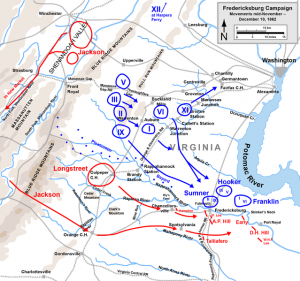
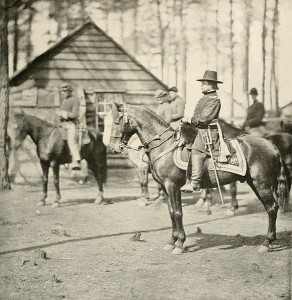
![Building corderoy [sic] roads from Belle Plain to Frederickburgh [sic] (H.Q.) (by Arthur Lumley, between 1860 and 1865; LOC: LC-DIG-ppmsca-20775) Building corderoy [sic] roads from Belle Plain to Frederickburgh [sic] (H.Q.) (by Arthur Lumley, between 1860 and 1865; LOC: LC-DIG-ppmsca-20775)](https://www.bluegrayreview.com/wp-content/uploads/2012/11/20775r-300x223.jpg)
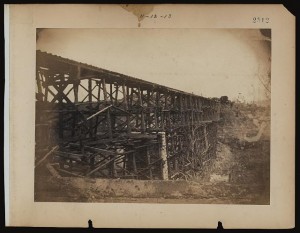
![View of lower end of Fredericksburg, [...] (Feb. 1863; LOC: LC-DIG-cwpb-03551) View of lower end of Fredericksburg, [...] (Feb. 1863; LOC: LC-DIG-cwpb-03551)](https://www.bluegrayreview.com/wp-content/uploads/2012/11/03551r-300x237.jpg)


